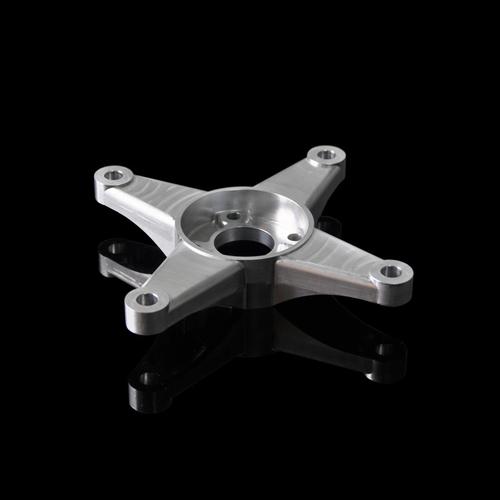Ensuring High-Quality Standards in Aerospace Parts: The Role of CNC Machines
2024-04-17
In the aerospace industry, precision and quality are paramount. CNC Aerospace parts must adhere to stringent standards to ensure the safety and reliability of aircraft. Computer Numerical Control (CNC) machines play a crucial role in achieving these high-quality standards. Let's explore how CNC machines ensure the high-quality standards required for aerospace parts.
First and foremost, CNC machines offer unparalleled precision. These machines are programmed with precise cutting instructions, allowing them to execute highly accurate cuts and shapes. The use of advanced toolpaths and cutting strategies ensures that the material is machined to the exact specifications required. This precision is crucial in aerospace parts, where even the slightest deviation can compromise the performance and safety of the aircraft.
Secondly, CNC machines provide repeatability. Once a program is set up and tested, it can be used repeatedly to produce identical parts with consistent quality. This is particularly beneficial in the aerospace industry, where large quantities of identical parts are often required. CNC machines eliminate the need for manual machining, reducing human error and ensuring consistent quality throughout the production process.
Moreover, CNC machines are versatile and can handle a wide range of materials. Aerospace parts are often made from specialized materials such as titanium, aluminum, and composites. CNC machines are capable of machining these materials with precision, regardless of their hardness or brittleness. This versatility allows manufacturers to produce a diverse range of aerospace parts using the same machine, reducing the need for multiple machines and simplifying the production process.
Furthermore, CNC machines are equipped with advanced inspection and quality control systems. These systems allow manufacturers to monitor the machining process in real-time, identifying any deviations or issues promptly. They also facilitate post-processing inspections, ensuring that the final parts meet the desired quality standards. This continuous monitoring and inspection ensure that only high-quality parts are produced and delivered to the aerospace industry.
Lastly, the use of CNC machines reduces human intervention and dependency. Manual machining often involves a significant amount of skilled labor, which can be subject to fatigue, error, and inconsistency. CNC machines automate the machining process, reducing the need for manual intervention and minimizing the potential for human error. This automation not only improves the quality of the parts but also increases production efficiency and reduces costs.
In conclusion, CNC machines ensure the high-quality standards required for aerospace parts by offering precision, repeatability, versatility, advanced inspection and quality control systems, and reduced human intervention. Manufacturers who leverage the capabilities of CNC machines can produce aerospace parts that meet the stringent quality requirements of the industry, ensuring the safety and reliability of aircraft.



